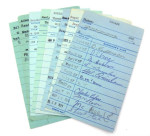March, 2016
now browsing by month
The 5 Questions Authors HAVE to Know How to Answer

 Close your eyes. (okay, open them… you have to read)
Close your eyes. (okay, open them… you have to read)
Picture that you are at a cocktail party. The room is filled with librarians, book buyers, heads of major chain retailers, and book reviewers. A lovely mid-30s woman approaches you with a napkin filled with shrimp tails and a half-empty glass of wine. You strike up a conversation and eventually the topic of your book comes up. This is PERFECT! Even though you have no idea what this woman does for a living, she COULD be a major player. When she asks the following questions, are you ready to answer?
And if you ARE ready to answer these questions, are you ready to answer them in a manner that does not bore her to tears? Are you quick and concise with your answers? Let’s look at the questions you will be asked over and over in the next few months. Let’s come up with answers and let’s practice until you can rattle off the answers without a moment’s hesitation.
First Question: What is your book about?
As you answer this question, keep your listener in mind. Be respectful of their time and keep your answer brief. The shorter your answers, the more people will want to know. They will “lean in” and ask more questions. You will create a desire to hear more. Answer this question in ONE sentence.
Here is mine:
The Write Way teaches self-published authors and publishers the rules of publishing and how to sell and market their book properly.
That’s it. If they want to know more… they will ask.
Second Question: Who needs your book?
Answer: NOT EVERYBODY. The woman at the cocktail party is most likely an industry insider and will not be impressed with any answer that starts with “Anyone” or “Everyone”. The truth is, no one NEEDS your book. Unless you wrote a book that has a PROVEN method to solve nausea for chemo patients, almost no one needs your book. Be specific and focused in your answer. Very specific. Very focused.
Here’s mine:
Authors who have just published a book or about to publish a book and are feeling like they don’t have all the elements in place. Over 100,000 people self-published last year. Most of them could have used my expertise.
Third Question: What makes your book different?
This is where you show whether or not you know your market and your competition. Umming and Hmmming over this question will not look good. Do you know the authors you are up against? What are the other books your readers are buying? Why do they need YOUR book?
Here’s my answer:
Other books offer advice on the publishing process and stop there. Others focus on sales, promotion, and marketing. The Write Way walks you through, step by step. from manuscript all the way to a year after publication, saving you money and avoiding mistakes in packaging, design, editing, marketing, PR, sales, AND promotion.
Fourth Question: Where can I get your book?
Back to the cocktail party and your new friend. She is interested in your book and still asking questions. That’s great! But you don’t know who this lady is. Even if you DO find out what she does, you don’t know her whole story.What if she owns an independent bookstore on Main Street? What if she is married to an editor at Amazon.com? Be careful of how you answer this question. You want to use vague language that answers directly but does not unintentionally offend.
Here is my answer:
It’s available online, at bookstores, available for request at libraries, on my website (newshelves.com) or from me directly. It’s also an ebook in all formats.
Fifth Question: How are you promoting the book?
This is the question that stumps most authors. And for those that do know the answer, their answers are often not enough to impress industry insiders like this lady. Have an answer ready that will show her you know your business. This is not a time for sheepish grins and “aw shucks, I’m just an author”. Know your social media plan, know how many reviews you want to get and from where. Know how many newspapers you will be contacting. Know how many radio interviews you plan on doing. If you do not know how you are going to promote your book, how can you ask anyone to put it on their shelves?
Here is my answer:
I am doing 2-3 webinars a month with industry big shots like IBPA-online.org and promoting my book in each one. I am a guest blogger each week and writing guest articles industry magazines and blogs like thebookdesigner.com, NonFictionAuthorsAssociation.com, and WhereWritersWin.com. I have thousands of Twitter, Facebook, and LinkedIn followers and a mailing list that historically has purchased all of my past products. I am partnering with huge names in the self-publishing such as AuthorU, The Publicity Hound and Speaker Net. Last week, I was on a pod-cast out of Denver that gets over 30,000 downloads a week. I am promoting my book for several hours a day each day of the week for the next year and driving customers to the locations that agree to stock it.
——————————–
So. Keep it quick, know your answers cold, keep your audience in mind, and be as respectful as you can. Practice your answers and you will never be caught up short when the chips are down. You may not get a second chance to make a first impression.
(and if you want a copy of The Write Way. you can find it on my website or online HERE)
WHAT AUTHORS AND PUBLISHERS NEED TO KNOW ABOUT CIP, PCIP, MARC, LCCN, PCN

CIP, PCIP, MARC, LCCN
Confused about what all the initials mean?
 Wonderful outline of what you need to know by DGI, Connecting publishers and librarians for the benefit of readers everywhere.
Wonderful outline of what you need to know by DGI, Connecting publishers and librarians for the benefit of readers everywhere.
CIP stands for Cataloging-In-Publication. It is a service originally established by the Library of Congress to assist publishers and libraries by providing bibliographic descriptions of soon-to-be-published books. There is a common misconception that CIP is a number but it is actually a block of text (usually found on the copyright page of a book) that describes the book using a very specific set of vocabulary and structure. The text block includes Library of Congress authorized subject headings, classification numbers for both the LC and Dewey Decimal systems, and all the information librarians need to get the book ready to put on the shelf in their libraries.
Publishers can apply for CIP to the Library of Congress. However, some publishers, especially self-publishing authors or very small presses, do not qualify for the CIP Program.
PCIP (Publisher’s Cataloging-In-Publication) is data, prepared by trained professional catalogers, which meets all the standards of records prepared by the Library of Congress. It comes in the form of a block of text which is inserted into a copyright page; in addition, an electronic version of the catalog record is sent to OCLC and SkyRiver, two major cataloging databases. PCIP services are available to any publisher or self-publishing author, for material in any format (print, audio, DVD, ebook, etc.).
The MARC (MAchine-Readable Cataloging) record is a computer file containing the PCIP text block in coded form. The file is delivered to OCLC and SkyRiver soon after the text document is delivered to the publisher. These records can be located and downloaded by libraries as part of their regular workflow. The records can only be opened and read by using special bibliographic software which libraries have and most publishers do not, unless publishers are creating their own cataloging for their titles.
“But I already have an LCCN (Library of Congress Control Number) or PCN (Pre-assigned Control Number)—isn’t that the same thing?”
Publishers that qualify for CIP receive an LCCN, and their work is cataloged to be added to the Library of Congress collection. Publishers that do not qualify for CIP can request a PCN (Pre-assigned Control Number), which is a placeholder only and does not contain the level of description that libraries need. More information is available on LC’s website: http://www.loc.gov/publish/cip/
What is the advantage of having PCIP in your book?
PCIP is a value-added feature; a purchasing librarian will recognize that your title(s) can quickly be added to a library’s collection. Books without CIP/PCIP are often set aside to be cataloged later. This means that your title will not get onto the shelves and into readers’ hands as quickly as you’d like. Having the MARC record for your title already prepared and loaded into OCLC and SkyRiver means improved service to library users (and happier librarians). If you plan to sell your book (whether print, audio or ebook) to libraries, you need PCIP!
Where can publishers obtain PCIP and MARC records for their titles?
The Donohue Group, Inc. (DGI) is a library contract services firm based in Windsor, CT. We are a company founded, managed and staffed by professional librarians. DGI has served the library and publishing communities for more than 30 years, garnering a reputation for professionalism, creativity, and individualized attention to client needs. We began our PCIP program many years ago to serve the needs of small and independent presses and authors, and we have an established track record in providing high-quality cataloging to the publishing community.
Please visit the DGI website, which describes their services in more detail: http://www.dgiinc.com/pcip/
Questions? Contact Pat McCurdy-Crescimanno at pcip@dgiinc.com
Libraries, Joel Friedlander, and The Book Designer Blog
Thank you to Joel Friedlander and The Book Designer for posting my thoughts on the library market today! To see more, click HERE


 D5 Creation
D5 Creation